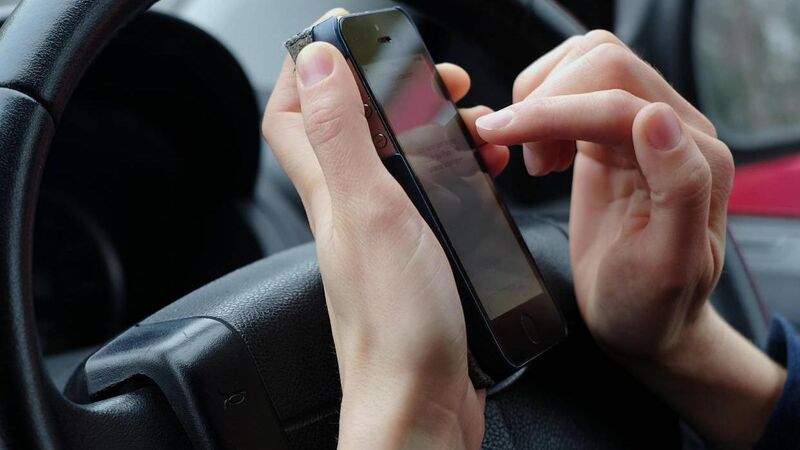Trevor Laffan: Hefty fines for bad driving work in Australia - so try them here

That is achievable, if we have the will to do it.
According to a recent report, motor speed data from a Cork village showed “shocking violations”, with nearly 90% of vehicles well in excess of the 50km/h limit, and one travelling in excess of 140km/h.
I suspect many more villages across the country would have similar statistics if they were surveyed. Just pull into the side of the road, any road, for a few minutes and you’ll see it for yourself.
A recent driver attitude and behaviour survey showed that 19% of drivers still use their mobile phone at least sometimes while driving to read messages/emails, and 13% use them to write messages/emails.
Other motorists will check phone notifications and social media, respond to social media posts, and take photos/videos to share on social media.
Armed with what we know, you would think drivers would be more inclined to slow down and put the phones away.
Obviously not, though, because RTÉ reported that Gardaí held a National Day of Action on January 16 this year, aimed at targeting the use of a mobile phone while driving, and a total of 266 people were found to be on their phone behind the wheel during that period.
In the latest tally I saw, 762 motorists had received fixed penalty notices for mobile phone use while driving, which carries a €120 fine and three penalty points on a licence. This is a four-fold increase on the daily average of 60 motorists who were detected using their phone while driving during 2024.
In the run-up to every bank holiday weekend, An Garda Síochána and the RSA appeal to the public to be extra careful on the roads. They remind us that extensive policing operations take place over the few days of every bank holiday, but in spite of all the warnings, there will be accidents and there will be drivers detected using their mobile phones.
I have commented on this before, and it still baffles me.
Evidence suggests, though, that many drivers continue to do so.
Is it just laziness, or are they unable to connect the phone to the hands-free device, or is it something else?
Maybe they realise that a lack of garda resources might suggest their chances of being caught are reduced. Or perhaps they don’t care about getting caught and fined because the penalties aren’t harsh enough.
I can tell you from my recent stay in Australia, that drivers there certainly worry about being caught for a variety of motoring offences, and there’s a good reason for that. The penalties are severe.
In Brisbane, I drove my daughter’s car, an Audi Q7, which had plenty of power. Most vehicles are large over there, and the roadways are good so it would be easy for drivers to exceed the various speed limits, but they don’t. When sticking to the limit, I was rarely overtaken. That surprised me at first, until I realised there’s a good reason for it.
Exceeding the speed limit could cost you $322 (€162) if you’re less than 11 km/h over the limit, and that becomes $483 (€245) if you’re 20 km/h over, or $725 (€366) if you’re 30 km/h over. Start travelling any faster than that and you’re looking at $1,800 (€910), or potentially more if you end up in court.
I didn’t see too many drivers on their mobiles either.
Research undertaken by the Transport Accident Commission in Australia found that taking your eyes off the road for two seconds or more doubles your crash risk, so it’s little wonder that law enforcement in every state and territory of Australia is coming down hard on mobile phone use while driving.
Using a hand-held mobile phone is illegal when your vehicle is stationary but not parked, such as at traffic lights or when you’re stopped in heavy traffic.
Queensland isn’t playing games when it comes to road safety.
Learner and provisional drivers under 25 in Queensland cannot use hands-free, wireless headsets or a mobile phone’s loudspeaker function while behind the wheel.
In terms of driver distraction, a provisional driver’s passengers are also banned from using a mobile phone’s loudspeaker function.
Using the phone while driving there will set you back an eyewatering $1,033 (€522) and three penalty points - here, it’s €120 - with double penalty points applying for a second offence if it occurs within 12 months of the original infringement.
There’s a $1,200 (€606) fine for failing to wear a seatbelt too, and another $1,200 if you fail to ensure a passenger under 16 years of age is wearing one that is properly adjusted and fastened.
Those penalties are more effective than any traffic calming measures.
Hitting offending drivers in the pocket is the most effective way to change driving behaviours in Ireland. Everything else has failed.







 App?
App?




